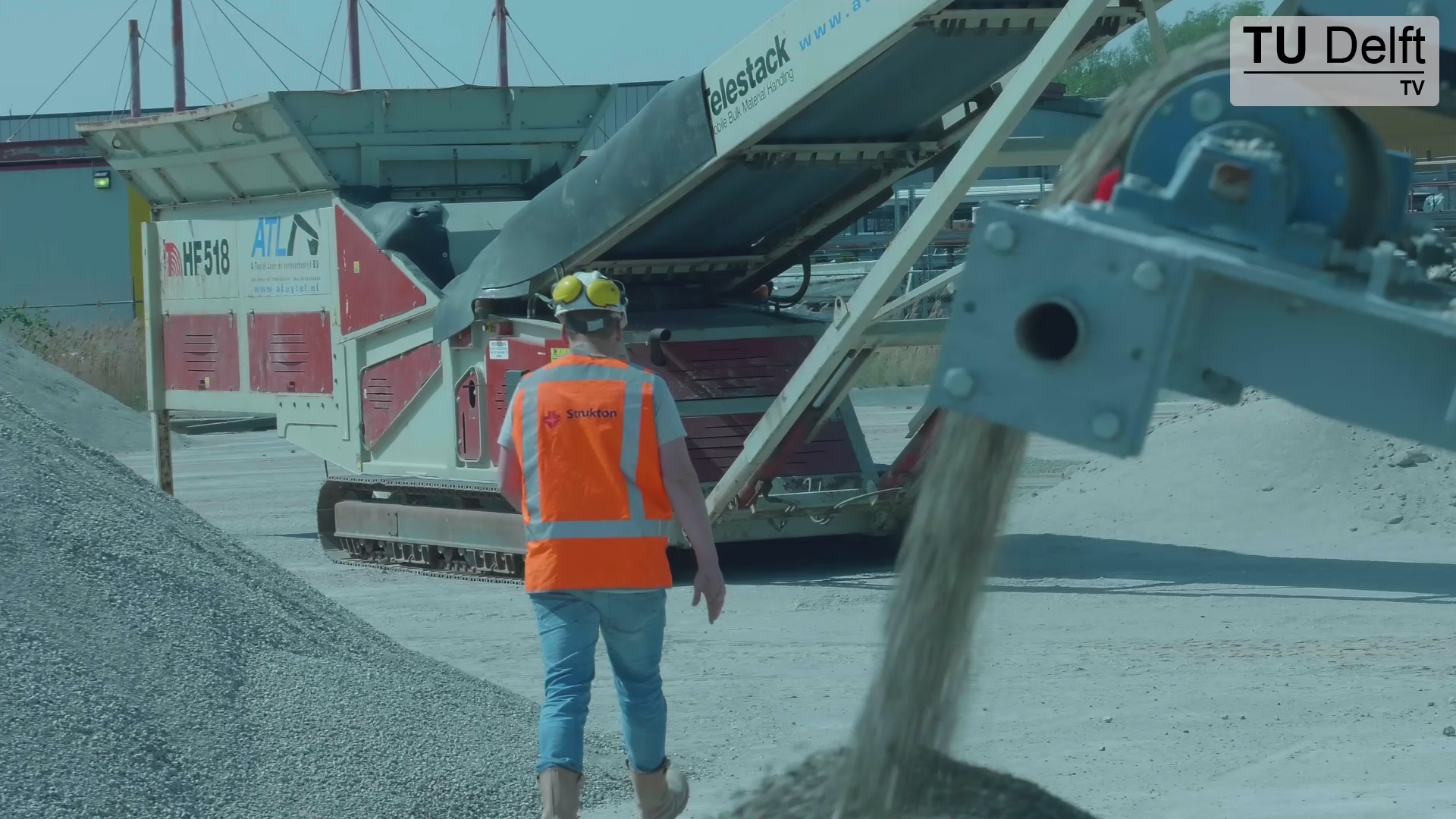Reclaiming old concrete from demolished buildings and recycling these raw materials seemed impossible. That is, until TU Delft and construction company Strukton joined forces.
Site manager Frank Rens with the mobile recycling unit. (Photo: TU Delft TV)
We know about the effects of flying, heating and the meat industry. But did you know there’s another large contributor to CO2 emissions? It’s called concrete, and it has been used worldwide since the 19th century. As of now, between five and ten percent of global emissions are attributed to this building material. There is, however, a way to minimise the effects of concrete pollution: recycling.
Considerable cuts
Using concrete in such a circular way means reclaiming the raw material from buildings and separating it into gravel, sand and cement. “These materials will then once again be made into concrete,” explained Prof. Peter Rem. “The recycled concrete is indistinguishable from other variants made from river sand, gravel and cement from limestone quarries.” Since cement produces between five and ten percent of the world’s combined carbon dioxide emission, recycling concrete will enable considerable cuts in CO2 emissions.
Joint forces
To actually make this happen, TU Delft joined forces with Strukton, a construction company that focuses on the sustainable use of materials. “We had already worked together in a number of research projects,” confirmed site manager Frank Rens. Among them are Hiser and Veep, two projects that aimed to develop and demonstrate solutions for the higher recovery of raw materials. While the goal of these projects was to develop innovative technologies to recycle concrete, the most recent research focuses on establishing a mobile concrete recycling plant.
“Right now, we are working on the development of the ADR, which stands for Advanced Dry Recovery and is basically a machine with a fast spinning rotor that demolishes the raw material,” explained Rens. “The coarse and fine materials are separated and, given the large impact, will also break up further.”
As of this year the machine was made mobile, so it can be relocated to different building sites. There it can process concrete debris from demolition into resources for new concrete, which can be immediately used on site.
- TU Delft TV shot a short documentary on recycling concrete. Make sure to watch it below.
TU Delft TV / TU Delft TV is a collaboration between Delta and the Science Centre. The crew consists of TU Delft students.



Comments are closed.